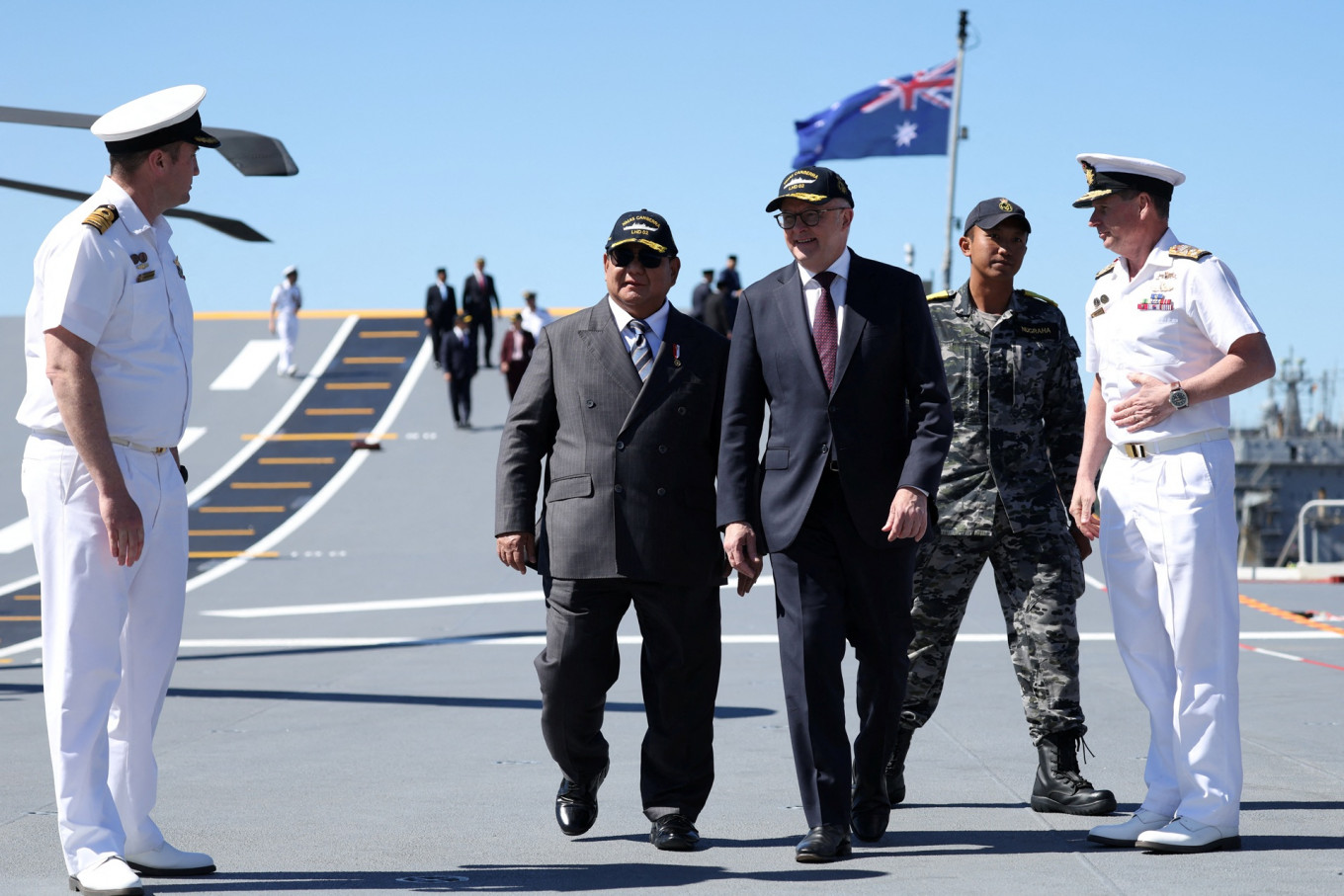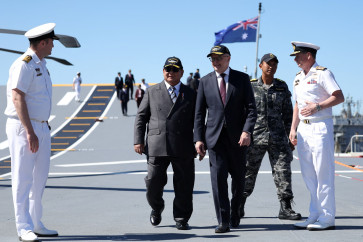Popular Reads
Top Results
Can't find what you're looking for?
View all search resultsPopular Reads
Top Results
Can't find what you're looking for?
View all search resultsFear factor in RI-Australia ties?
The true reasons behind the announcement of a new security treaty between Indonesia and Australia are not clear, especially when the neighbors have yet to exploit the many economic potentials of their strategic partnership as well as other nondefense collaborations.
Change text size
Gift Premium Articles
to Anyone
T
here is no doubt that the new security treaty between Indonesia and Australia will strengthen the two countries’ overall ties further, but it was not necessarily the watershed moment that Australian Prime Minister Anthony Albanese described.
Two nations come close together primarily because they become economically interdependent or because they share common values or common interests. To say now that Indonesia and Australia are becoming closer over security suggests the presence of a fear factor. Whatever that fear might be, it is the worst reason to build any relationship, at least from the Indonesian perspective.
Negotiations for the treaty were concluded during the state visit of President Prabowo Subianto to Sydney, and the treaty was announced during the two leaders’ joint press conference on Nov. 11 aboard HMAS Canberra, the Royal Australian Navy’s fleet flagship. Albanese said he would travel to Jakarta in January to sign the treaty.
Building on existing security arrangements, the new elements in the treaty, as Albanese explained, would include regular consultations between the two countries’ leaders on security matters and exploring their response, either jointly or individually, including when the security of one or both countries is threatened.
Indonesia and Australia already have elaborate security cooperation arrangements in place, based primarily on the 2006 Lombok Treaty. These include various military exercises, bilateral or multinational, the “2+2” meetings of foreign and defense ministers and the annual leaders’ meeting for discussing overall relations, including security.
The neighboring regional giants certainly have a responsibility, whether individually or collectively, to ensure peace and security, particularly in the Indo-Pacific. But we should also be mindful of the differences in how they deal with regional security challenges.
Australia has forged various security alliances, including a bilateral treaty with the United States, the trilateral AUKUS pact with the US and the United Kingdom and the Quad security dialogue with the US, Japan and India. A common thread in these alliances is the need to counter the rise of China as a global superpower.



















